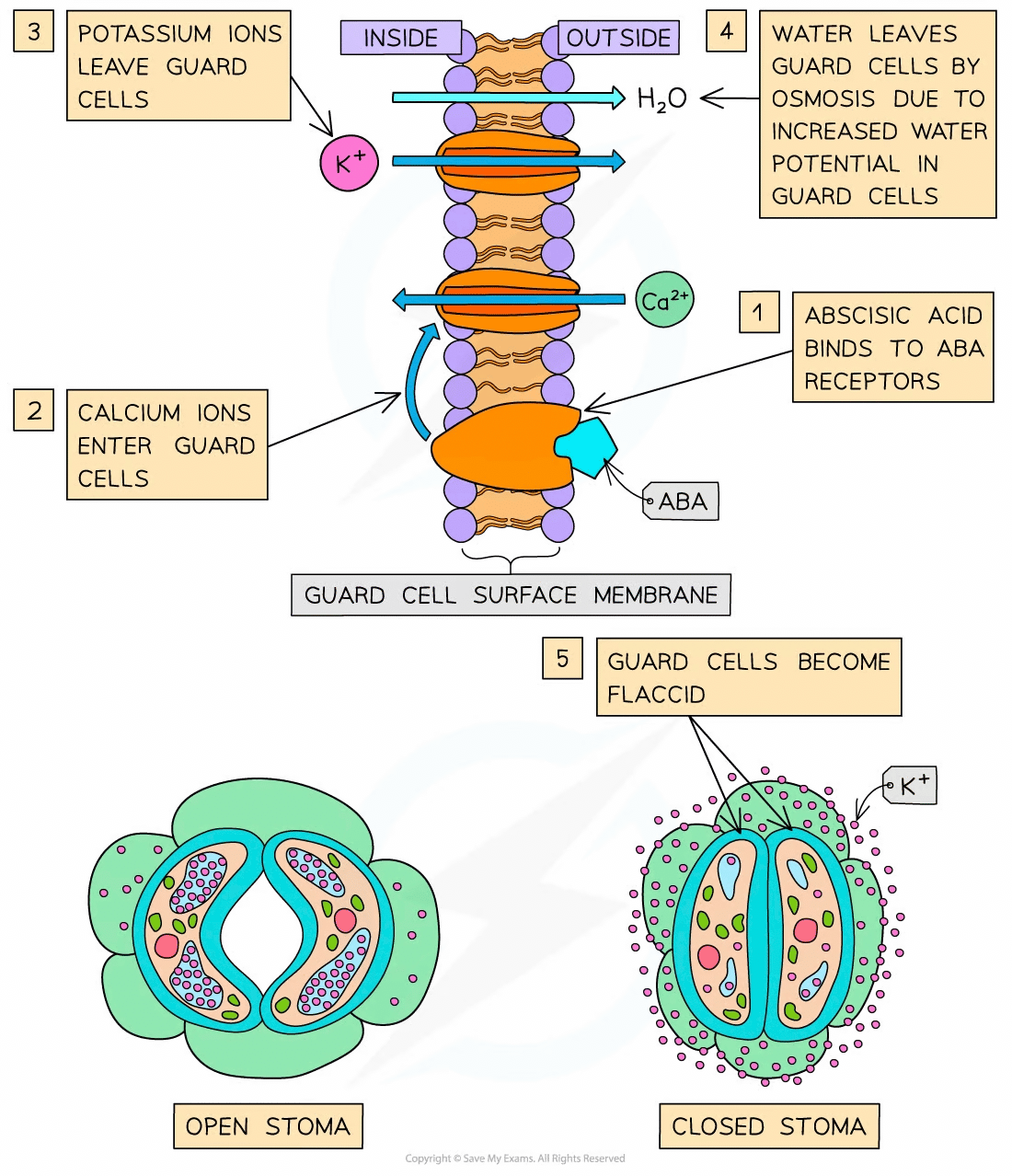Abscisic Acid & Stomatal Closure (Cambridge (CIE) A Level Biology): Revision Note
Exam code: 9700
Abscisic acid & stomatal closure
During times of water stress, the hormone abscisic acid (ABA) is produced by plants to stimulate the closing of their stomata
Certain environmental conditions can cause water stress, such as very high temperatures or reduced water supplies
Guard cells have ABA receptors on their cell surface membranes
ABA binds with these receptors, inhibiting the proton pumps and therefore stopping the active transport of hydrogen (H+) ions out of the guard cells
ABA also causes calcium (Ca2+) ions to move into the cytoplasm of the guard cells through the cell surface membranes
The calcium ions act as second messengers:
They cause channel proteins to open that allow negatively charged ions to leave the guard cells
This stimulates the opening of further channel proteins that allow potassium (K+) ions to leave the guard cells
The calcium ions also stimulate the closing of channel proteins that allow potassium (K+) ions to enter the guard cells
This loss of ions increases the water potential of the guard cells
Water leaves the guard cells by osmosis
The guard cells become flaccid, causing the stomata to close


Unlock more, it's free!
Did this page help you?